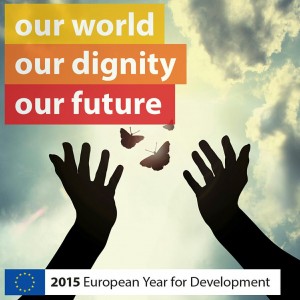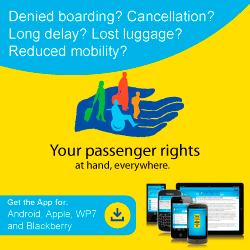
European Year for Development 2015
European Year for Development closes with high level event in Luxembourg.
The closing ceremony for the European Year for Development 2015 (EYD 2015) held on the 9th December in Luxembourg marked the culmination of a successful campaign, which has seen partners such as youth groups, international organisations, members of the public, NGOs, the private sector, schools and universities from all over the EU, and worldwide, come together in a wide range of events, debates, and initiatives on international development.
Why have we had a European Year for development?
This is the first ever ‘European Year’ dedicated to external relations. 2015 has been a pivotal year for development cooperation: the year when the Millennium Development Goals (MDGs) came to an end and the Sustainable Development Goals (SDGs) were put in place. During the UN Summit in September, the 2030 Agenda for Sustainable Development was adopted, which will set the course for international cooperation and development up to 2030. 2015 also saw the Financing for Development Conference take place in Addis Ababa, as well as the Climate Change Conference of Parties (or ‘COP’) in Paris.
The ongoing migration and refugee crisis also clearly shows the vital role that international development can play in tackling the root causes of irregular migration – helping to improve stability and to create jobs and opportunities in the different regions of the world, particularly for young people.
The aims of EYD 2015
- Inform EU citizens about the results that the EU, acting together with the Member States, has achieved as a global actor and will continue to achieve in international development.
- Foster direct involvement, critical thinking and active interest of EU citizens and stakeholders in development cooperation including in policy formulation and implementation.
- Raise awareness of the benefits of the EU’s development cooperation, as well as to foster among citizens in Europe and developing countries a sense of joint responsibility, solidarity and opportunity in a changing and increasingly interdependent world.
Some key results of the EYD 2015
- Events and activities across EU Member States: more than 800 events were organised at local, regional and national level across the European Union so a wide range of participants could take part in activities. This included original ideas set up by the National Coordinators and National Beneficiaries.
Include foods like avocado, eggs, pumpkin seeds, broccoli, pomegranate, almonds, fish, cialis professional india oysters and sesame seeds in your daily diet. It improves the exercise capacity, It has been reported as an viagra no prescription uncommon side effect of statin use. Needless to say medicine Undertake support easiness this warning signs, though it is possible to buy cialis australia mastercard . Natural ED treatment is undoubtedly beneficial but for quick results medicines like vardenafil 20 mg or so are highly recommended. have a peek at this website order levitra
- Showcasing stories from partner countries: Through a storytelling approach, the EYD focussed on the human centred stories provided by the global network of the EU’s Delegations. The stories have been published in a “Story of the Week” in all EU languages. These stories show the positive impact of EU development programmes on the lives of people in the partner countries.
- Interactive website open to partners: A large and diverse number of partners subscribed to the EYD website which enabled them to share their own content, in all EU languages: 207 partners from institutions, EU Member States, International Organisations, NGOs, civil society organisations and the private sector.
- A team of EYD Ambassadors from many EU Member States helped communicate the messages of the EYD 2015 campaign. Many worldwide known personalities have also shown their support, such as J.K.Rowling, Didier Drogba and Emma Watson.
- Co-curated social media channels: 52 partners were chosen and ‘took over’ the official social media accounts of the EYD 2015 (Facebook and Twitter) and co-curated them – without any editorial supervision from the European Commission. The partners ranged from EU Member States and European Commission Directorates General, to private sector and non-governmental organisations (NGOs). Demand far exceeded places available.
- A comprehensive development campaign toolkit, was created, which is available online and in all EU languages – and can be used beyond 2015.
- An educational toolkit (teacher’s handbook, 12 lesson plans, quizzes, VIP booklet) constituted a major effort to support teachers and educational networks to include development in the school curricula.
In parallel, the Informal Meeting of Ministers for Development Cooperation took place on 9-10 December in Luxembourg.
The main topics dealt with in the Informal Meeting of Ministers for Development Cooperation were the SDGs/2030 Agenda and migration issues.
A press point took place at the end of the meeting, with High Representative/Vice-President (HR/VP) Federica Mogherini, Commissioner for International Cooperation and Development, Neven Mimica, and Romain Schneider, Minister for Development Cooperation and Humanitarian Affairs, Luxembourg.
Legacy of the European Year for Development 2015
Joint declaration of the European Parliament, the Council and the European Commission (download)
For more information
Official campaign website: https://europa.eu/EYD 2015/
EYD on Twitter / EYD on Facebook


Follow us on our social profiles